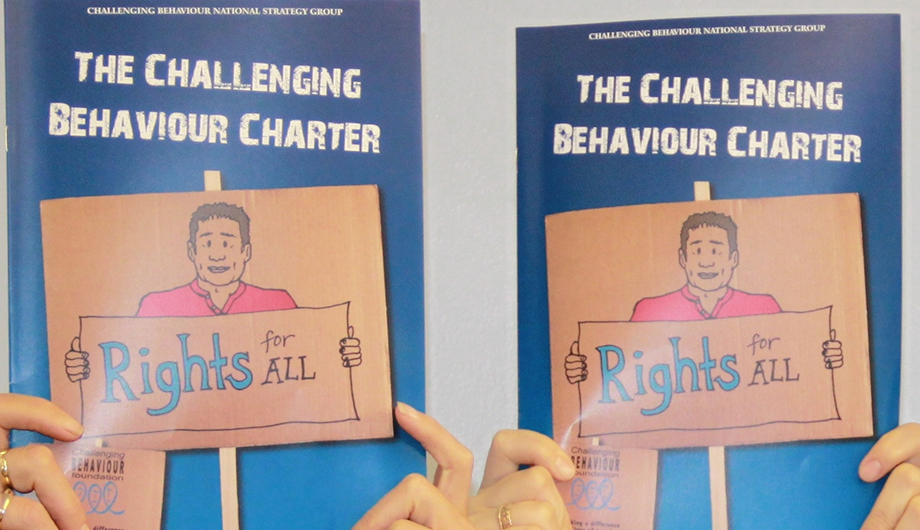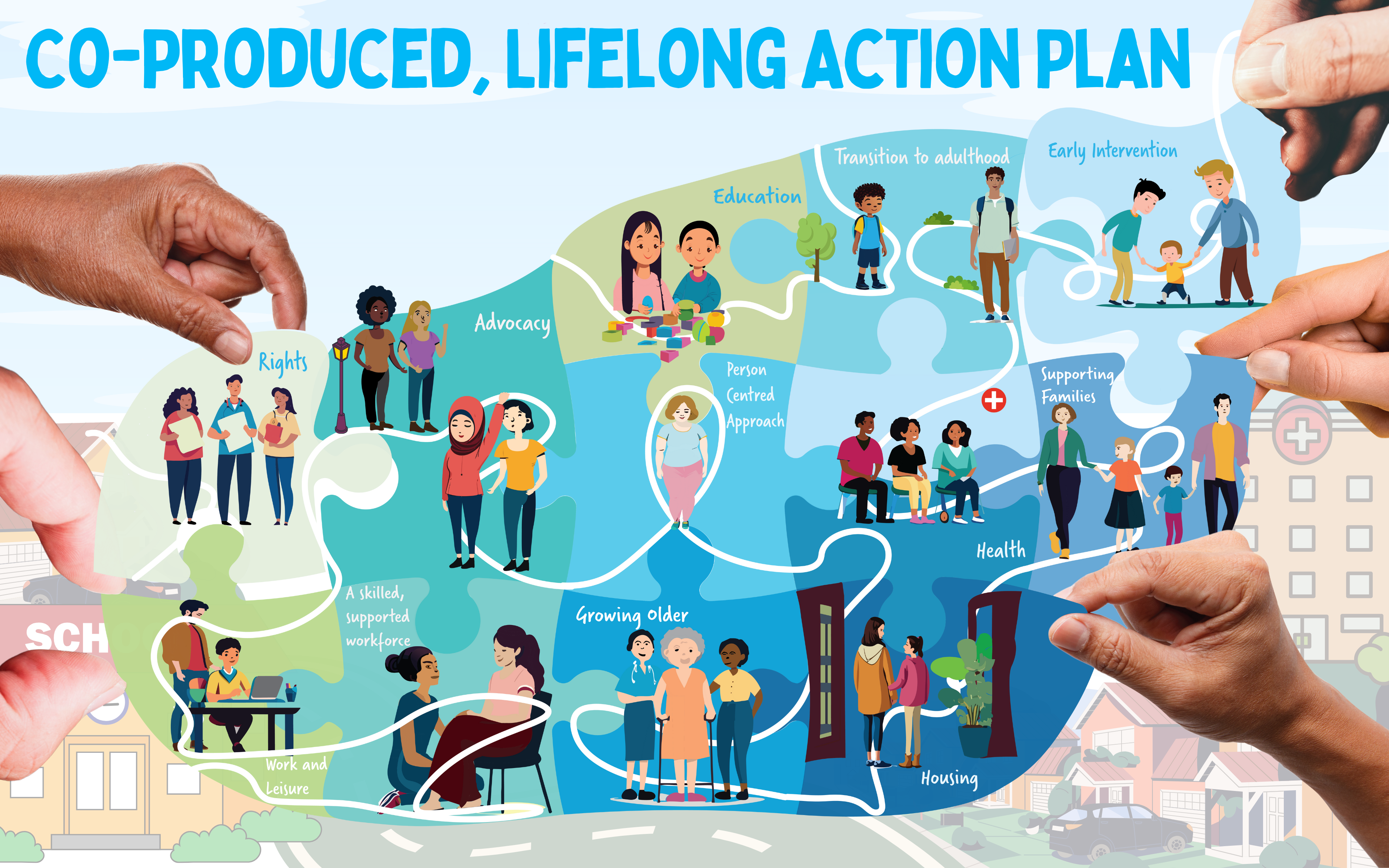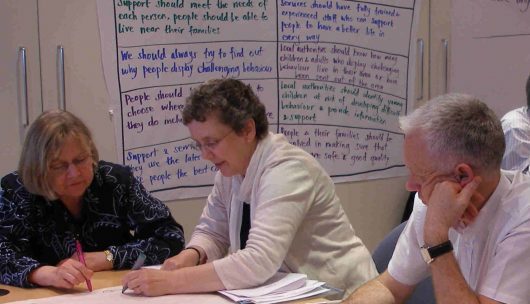
Challenging Behaviour Charter
The Challenging Behaviour Charter sets out the rights of the people with learning disability and the action that needs to be taken. Find out how to sign up.

There is a wealth of evidence about how to support people with a learning disability whose behaviour challenges in the community. This page is for policy makers – setting out what needs to be done to get it right.
Back to the Action Plan main page
Working together and building on years of evidence, reports and recommendations, we have co-produced a list of actions that would make a real difference to children, young people and adults with a learning disability.
Co-Producing a Lifelong Action Plan
last updated: 19/11/24
Co-Produced, Lifelong Action Plan
As part of this, we worked to identify some headline actions. Many of these headline actions build on work that is already ongoing – what we need now is the political will to extend, invest, expand, and embed these throughout the system.
The actions that have been co-produced build on years of previous work and recommendations, and reflect the knowledge and experience of people with a learning disability, family carers, and people working all parts of the system. They are not a complete and comprehensive list, but they are actions that will make a real difference to the lives of children, young people and adults with a learning disability, supporting them to live good lives, in their local communities, with the right support in the right place at the right time.
This is a live, evolving action plan; it will be changed and updated as situations change and progress is made. We want this plan to remain relevant, and are committed to updating it when needed. While the underlying principles will remain the same, the actions needed to achieve these may change over time, as policies, practice, and knowledge changes.
A Skilled, Supported Workforce
As a collective, we are working on developing a list of asks and actions, based on lived experience, evidence, and good practice, that will help support people with a learning disability to access the right support in education and work and leisure. These will be added as they are co-produced – if you are keen to be part of co-producing these actions, please email actionplan@thecbf.org.uk
This is a ‘living action plan’, that builds on years of previous work and recommendations. The actions that need to be taken are likely to change over time – this plan will be updated as situations change and progress is made. If you have any questions, please email actionplan@thecbf.org.uk

The Challenging Behaviour Charter sets out the rights of the people with learning disability and the action that needs to be taken. Find out how to sign up.

The Challenging Behaviour Foundation formed the Challenging Behaviour - National Strategy Group to break down the barriers to enable children and adults to get the right support to have a good life. Find out more about the CB-NSG on this webpage!

This page links to information, resources, policy documents and guides to aid dissemination of best practice